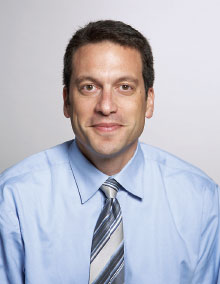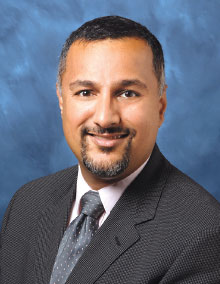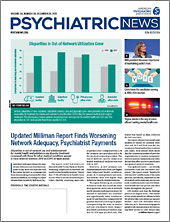When Robert Douglas, D.Min., lost a good friend and fellow Baltimore City Police Department officer to suicide in the 1980s, he wanted the funeral to include all the honors that are given to an officer who had died in the line of duty.
But he ran into challenges. Not everyone agreed with him, and few even knew how to talk about suicide. “We had never had any training in this area,” said Douglas, who retired from the department after 20 years and founded the National Police Suicide Foundation.
Though his friend’s funeral was ultimately what Douglas hoped it would be, the experience showed him just how completely the law enforcement community had cloaked suicide and mental health in silence.
According to a 2018 white paper commissioned by the Ruderman Family Foundation, first responders such as police officers are more likely to die by suicide than in the line of duty. Officers are also five times more likely than the general population to experience posttraumatic stress disorder (PTSD), the paper stated.
A 2011 study published in the International Journal of Emergency Mental Health found that the percentage of officers with depression was nearly double that of the general population (12% versus 6.8%).
Just this year, 10 New York City Police Department (NYPD) officers died by suicide. Typically, there are about four or five deaths by suicide a year, Commissioner James O’Neill told CBS New York.
Yet despite the prevalence of mental health problems and suicide in law enforcement, stigma is pervasive, presenting a substantial barrier to care.
Risk Factors
Those in law enforcement often come into the career with protective elements that can help them deal with trauma, explained Craig Katz, M.D., a clinical associate professor of psychiatry, medical education, system design, and global health at the Icahn School of Medicine at Mount Sinai. Officers are trained to respond to intense situations, and they often have informal support networks, such as the close-knit connections they develop with their peers.
“People who are drawn to this work are typically more resilient,” Katz said. While they bounce back from suffering, he explained, it doesn’t mean they are impervious.
The sheer amount of trauma to which officers are exposed presents an enormous risk factor for such common posttraumatic problems as depression, PTSD, and substance use issues, any of which can extend to suicidality, Katz said.
“When you’re seeing the worst depravity, the worst evils that people can do to one another—this can add up and take a toll,” explained Frank Dowling, M.D., a clinical associate professor of psychiatry at the State University of New York at Stony Brook and medical advisor to Police Organization Providing Peer Assistance, a peer support organization for NYPD officers.
View of the Mental Health Profession
Officers frequently think of themselves as protectors, Dowling explained. “They can feel embarrassed, weak, even guilty that they’re affected by mental health challenges.”
Additionally, officers often do not seek help because they fear that supervisors and peers will think they are weak or unable to do their jobs, according to an October report by the Police Executive Research Forum (PERF) on police officers and suicide.
There is also a feeling of mistrust among officers about talking to mental health professionals. The limited times they see or meet with psychiatrists in their professional work is when their fitness for duty or carrying a gun is questioned or when bringing people with serious mental illness into the emergency room.
“They see the worst of mental illness, and the worst of the mental health system,” Dowling said. “They may believe that psychiatrists can’t understand police culture or stress and can’t help them.”
“We’re the people who could prevent them from advancing their career,” said Anand Pandya, M.D., co-founder of Disaster Psychiatry Outreach and co-author, along with Katz and Frederick Stoddard, M.D., of Disaster Psychiatry: Readiness, Evaluation, and Treatment (American Psychiatric Association Publishing). “We’re the people who could delay their work on a given shift.”
Pandya recommended that when working with officers, psychiatrists should accept their coping strategies as the first step, even when those strategies are different from those that the psychiatrist might encourage. “Acknowledging that they have a way of coping—which often does not involve verbalizing it or focusing attention on it—is a very important first step in the process of engagement,” he said.
He also encouraged psychiatrists to be upfront about whether the discussion could result in reports back to officers’ supervisors. “The benefits of avoiding that conversation so as not to alarm the patient are outweighed by the devastating impact on the therapeutic relationship if one talks to the patient’s supervisor when the patient wasn’t expecting it,” he said.
Changing the Culture
While mental health issues, including suicide, are pervasive within the law enforcement community, there are numerous local and national efforts working to change the culture.
“I’ve seen more police officers who are open to acknowledging that they may not be coping well in the last few years than I ever did when I was starting,” said Pandya, who has worked with first responders for about 20 years.
Groups such as PERF, which held a meeting on police suicide earlier this year along with the NYPD, have developed recommendations to prevent officer suicides, such as holding routine mental health checks to reduce stigma and creating confidential support programs and trainings. Some police departments like the NYPD have ramped up their efforts to address the problems.
The department has partnered with New York Presbyterian Hospital so officers can access free, confidential counseling; added an app to all department smartphones that shows what resources are available; and is launching a resiliency program, said Deputy Inspector Mark Wachter, commanding officer of the NYPD’s health and wellness section. The idea is to help officers with their problems early, including everything from financial issues to marital problems. “If we can help them early on, then we have a very good chance that this won’t lead to the tragedies that we’ve been seeing,” Wachter said.
Sometimes police tend to think, “We can’t get help because we’re stronger; we have to help the people who are helpless,” Wachter said. “But ultimately, … we’re all human. We all suffer.” ■
“The Ruderman White Paper on Mental Health and Suicide of First Responders” is posted
here. “An Occupational Risk: What Every Police Agency Should Do to Prevent Suicide Among Its Officers” is posted
here. “Health Disparities in Police Officers: Comparisons to the U.S. General Population” is posted
here.



